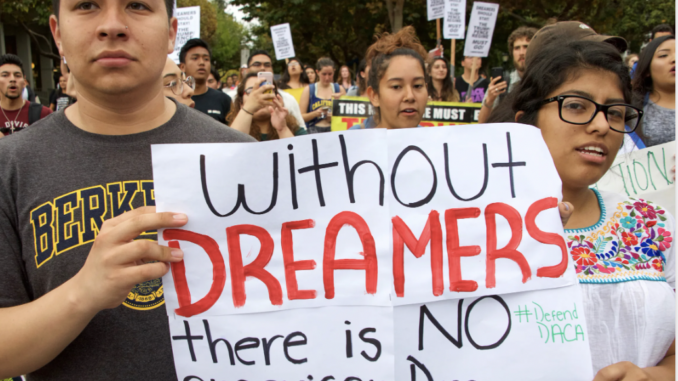
BY:SAMANTHA LORISTON
As election day nears, immigrants across the United States are carefully considering the potential impact of each candidate’s policies on key issues such as social justice, healthcare, and immigration reform. Three New York immigrants voiced their concerns in interviews with Brooklyn News Service.
Luz Medrano, a supervising attorney with CUNY Citizenship Now, was vocal about the significance of the election for the immigrant population. For Medrano, a long-time advocate for immigrant rights, the differences between the candidates were stark. “One candidate has immigrants’ interests in mind,” she noted, emphasizing how both policy and rhetoric influence the daily lives of millions. Medrano warned that the stakes are particularly high, with many immigrants fearing what a second Trump term might mean for their lives.
“Our vote is our tool,” Medrano said, underscoring the power of collective voices in the voting booth.
Josephine Moses, who arrived nine years ago from Guyana, sees this election as crucial. Working to save for college, Moses dreamed of a stable future in the U.S., hoping the new administration will expand pathways to citizenship and bolster protections for immigrants. “I just want to feel safe and know that if I work hard, I can have a future here,” she explained. Her goal is simple yet profound: the freedom to build a life without fear.
The candidates’ stances on immigration reform present two contrasting visions. One advocates increased border security with a pathway to citizenship for young immigrants, including DACA recipients, while the other suggests stricter policies, including ending birthright citizenship for children of undocumented immigrants and expanding deportations. Medrano, who has seen the struggles of undocumented families firsthand, highlights the need for reform: “The country hasn’t had an amnesty since 1986. We need a pathway, even if it’s limited, for those who have been here for decades.”
Healthcare also remains a contentious issue. One candidate supports expanding healthcare access, particularly for underserved communities, while the other favors budget cuts to federal programs. Medrano underlined how such policies affect immigrant communities, who already face barriers to healthcare. “Healthcare shouldn’t be something immigrants are afraid to ask for,” she said, hoping for more inclusive policies in the near future.
With election day five days away, Medrano urged immigrants, especially those undocumented, to remain cautious and prepared. “Have copies of your important documents ready and accessible, and if you have U.S. citizen children, plan for emergencies,” she advised, underscoring the importance of mental wellness during this period. Meanwhile, Moses, despite the uncertainty, remained focused on her goals: “Whether this changes my life soon or not, I’ll keep working toward what I want.”
Toshiko Vil, a 29-year-old who recently moved to the United States from Haiti, brought a fresh perspective to the conversation about political leadership. With limited English, she passionately advocated for the importance of female representation in government. Her experiences have shaped her belief that women must support one another in the quest for empowerment and equality. Vil thoughts reflected a desire for compassionate leadership that aligns with her values, particularly in the face of challenging political figures.
Vil’s perspective highlights the importance of female leadership and the need for women to support one another in politics. “As women, we must uplift each other to create a better future,” she stated. Her emphasis on aligning votes with personal and religious beliefs underscored a common sentiment among voters seeking candidates who reflect their values. It was clear that she hoped for a change in leadership that embodies empathy and respect, especially towards women.
